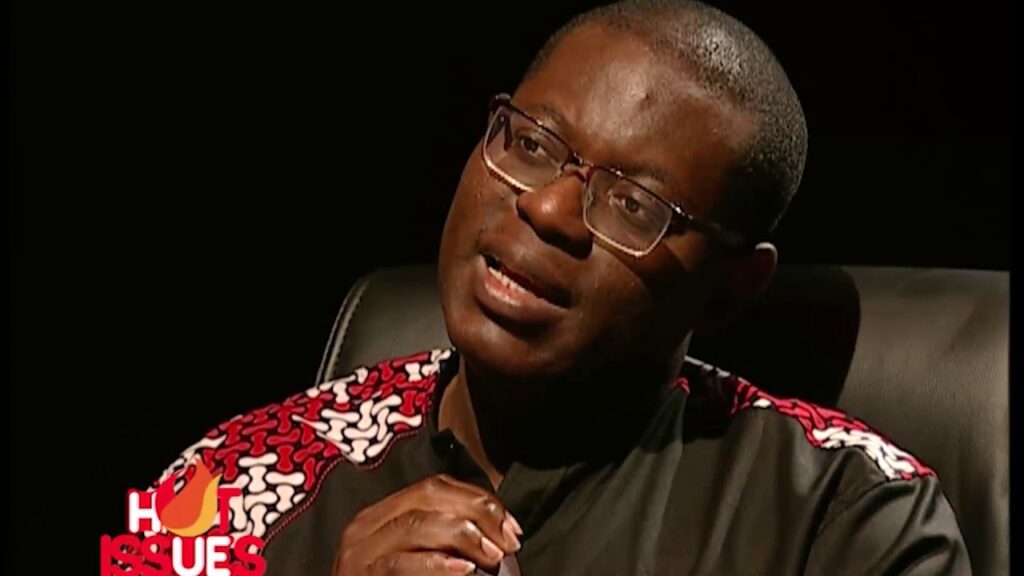The Honourary Vice President of IMANI Africa, Bright Simons, has raised serious concerns about the recent claims by the Attorney-General’s office that 60% of the funds lost through the collapse of Unibank have been recovered. In a sharply worded response, Mr. Simons called for the Bank of Ghana (BoG) and the Receiver, both major stakeholders in the defunct bank, to break their silence and clarify the true extent of recoveries made.
The Attorney-General, Dr. Dominic Akuritinga Ayine, announced last week that his office had entered a nolle prosequi in the criminal case The Republic v. Kwabena Duffuor & 7 Others (CR/0248/2020), effectively ending prosecution. According to Dr. Ayine, the decision was guided by constitutional authority under Article 88(3) and justified by what he described as a “60% recovery” of state funds lost in the Unibank saga.
However, Mr. Simons insists this figure is misleading and unsupported by public evidence. “We must hear from the Bank of Ghana and the Receiver. These are not just ordinary stakeholders, they are fiduciary custodians of public interest and have a legal responsibility to update Ghanaians,” Simons said.
According to him, the Attorney-General’s rationale, anchored on financial recoveries, “confuses the issues” and grossly underrepresents the liabilities and actual losses borne by the state. He argued that fictitious entries in Unibank’s accounts concealed the full extent of the shortfalls between liabilities (mainly public deposits and central bank support) and tangible assets (such as performing loans).
Mr. Simons pointed to a crucial letter written by Unibank’s shareholders on July 31, 2018, just a day before the bank’s license was revoked. In that letter, he noted, the owners of Unibank admitted direct liabilities of GHS 4.9 billion and proposed that assets worth GHS 3.52 billion be injected into the bank at forced-sale values.
“Even Unibank’s own figures put liabilities far above the amount claimed to be recovered,” Simons stressed, questioning how the Attorney-General’s office revised the total liability to GHS 3.3 billion.
Moreover, Simons argued that the Bank of Ghana alone was owed over GHS 2.8 billion, with KPMG’s forensic audit revealing an even higher exposure of over GHS 3.25 billion. By May 2018, Unibank’s validated liabilities had climbed to GHS 9.2 billion (approximately $2 billion), comprising customer deposits, BoG liquidity support, and corporate loans.
Simons also rejected claims that Unibank’s receivables from government contracts could meaningfully offset this burden. “Even their own claims amount to less than $200 million. If we’re generous and assume these are prudent loans, there’s still a gap of over $1.5 billion that remains unaccounted for,” he said.
He estimates that only about $160 million has actually been recovered just 10.6% of the full financial exposure—and questioned how that could be interpreted as a 60% recovery. He added that even this $160 million includes about $100 million in government contractor debts, effectively creating a circular accounting situation where government pays itself.
“This deal represents just 21% of what Unibank’s owners themselves admitted they owed. It is not a win for public accountability,” he declared.
Simons concluded by urging the BoG and the Receiver to come forward with updated and verifiable data on the actual liabilities and recoveries in the Unibank case. “Transparency in the aftermath of this financial sector clean-up is not optional—it is a national imperative,” he said.
The Attorney-General held a press conference in Accra on July 28 to defend his decision, noting that the ultimate goal of the prosecutions was to ensure accountability and recover public funds. But with experts like Bright Simons calling the recovery claims into question, public scrutiny of the government’s handling of the banking crisis is set to intensify.

